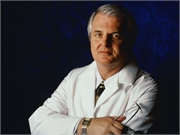Rates of death, pump thromboses, infections higher for patients who do not receive LVAD-specific care
THURSDAY, April 2, 2020 (HealthDay News) — Patients with left ventricular assist devices (LVADs) who live remotely can be successfully managed with specialized training and cooperation between local physicians and specialty medical centers, according to a study published in the April issue of JACC: Heart Failure.
Michael Yaoyao Yin, M.D., from the University of Utah in Salt Lake City, and colleagues evaluated the impact of shared-care models on outcomes for 336 patients with LVADs. Recipients of LVADs were classified based on the levels of care provided and training and resources used: level 1 (outpatient primary care without LVAD-specific care), level 2 (level 1 services and outpatient LVAD-specific care), and level 3 (level 2 services and inpatient LVAD-specific care and implantation center [IC]).
The researchers reported that 75.9 percent of patients were cared for in shared-care facilities. During a median follow-up of 810 days, patients at levels 2 and 3 shared-care centers had similar rates of death, bleeding, neurologic events, pump thromboses, and infections compared with patients cared for by IC. However, there were higher rates of death, pump thromboses, and infections for level 1 patients versus IC patients.
“Availability of LVAD-specific care should be strongly considered during patient selection and every effort made to ensure LVAD-specific training and resources are available at shared-care facilities,” the authors write.
Two authors disclosed financial ties to the medical device industry.
Copyright © 2020 HealthDay. All rights reserved.








